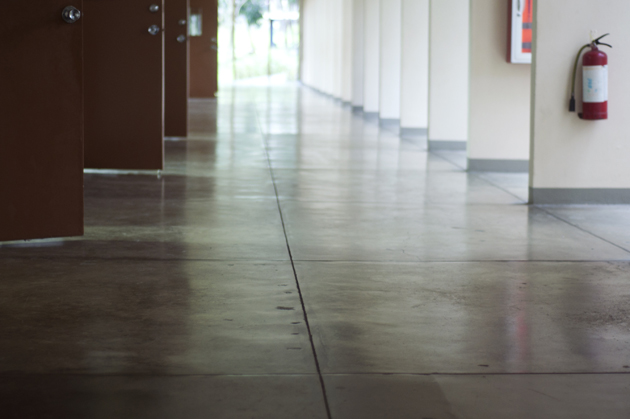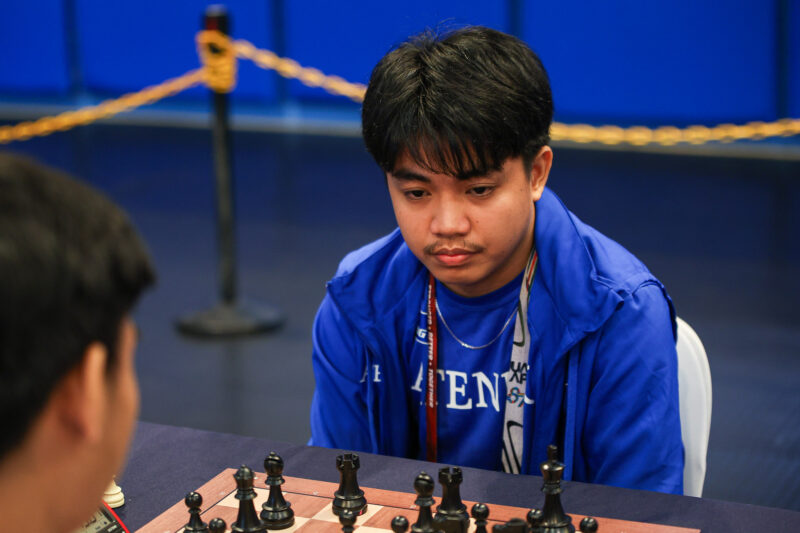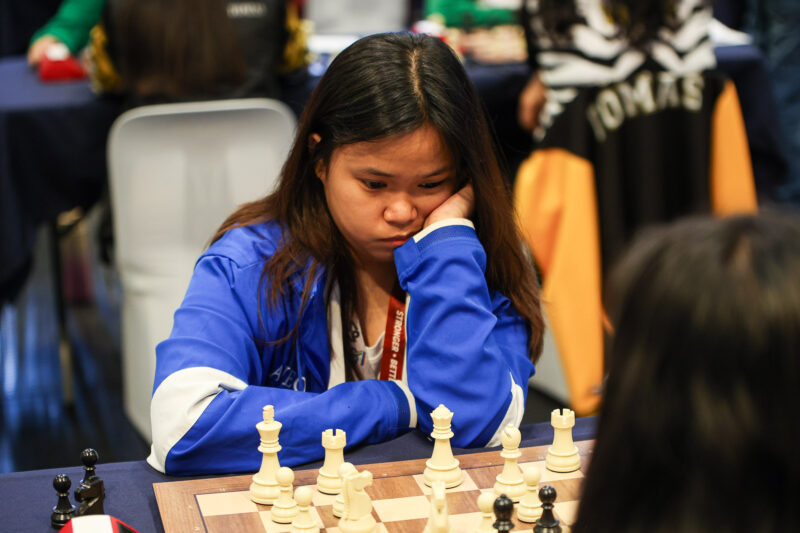It’s different out there for students with special needs.

MISUNDERSTOOD. Students with special needs perceive the world quite differently compared to their peers. Photo by Kitkat S. Lastimosa
Though some may point out that the term is rife with political incorrectness, “students with special needs” may be the kindest way to refer to students with mental and social disabilities—perhaps more so because it is the most common term used. While they may be a minority, students with special needs share the same campus with other students and take up the same subjects, despite the fact that they perceive their environment in different ways.
What many mistake for random quirks and eccentricities may be signs of conditions such as Asperger’s, attention deficit disorder, and certain forms of mild autism. Unfortunately, a number of students are clueless with how to interact with such individuals and often find that the easiest thing to do is to dismiss or ignore their presence, if only to keep from offending them.
With schools like Multiple Intelligence and Kalayaan College claiming to be equipped to handle such students, the Ateneo is faced with a challenge it may not claim to be the best at.
In a campus where cliquish tendencies are prevalent and where the word “autistic” is used as an insult, a response is asked of many aspects of the university—from the students, to the teachers, and down to its policies—on the issue of its capability to provide an environment where students with special needs can thrive.
Plans and policies
Cholo Mallillin, Assistant to the Associate Dean for Student Affairs (ADSA) for Services, states that the administration adheres to a strict procedure on dealing with students with special needs (SSNs).
“We call it the Protocol for Students with Special Needs. We meet and we try to identify [those who have] special needs based on the health records submitted by them and also by… data based on spotting.”
Spotting refers to the act of identifying SSNs whose conditions may not have been previously recorded. Such can be done by students, teachers and officers on campus.
Mallillin says that there is still room for improvement on addressing the special concerns pertaining to SSNs.
“We cannot compartmentalize and come up with a formula [that] works for all. Precisely [because] they are special needs students, they have different needs… You have to handle it case by case,” he explains.
Abet Go, a specialist on SSNs and a member of the Loyola Schools Guidance Office (LSGO), explains the process that allows students with more challenging conditions to enter the university.
“All schools are mandated [by law]. We should not discriminate students with special needs,” says Go. He explains that, provided that a student with special needs passed the entrance test and had decent grades in high school, he or she should be eligible to enter, as mandated by Chapter 2, Section 12 of RA 7277, or the Magna Carta for Disabled Persons.
“Not all parents declare that their son or daughter has a mental condition,” says Natasha Galbraith, the former president of the Ateneo Special Education Society (Speed). “Some aren’t aware that their child has a mental condition or refuse to accept it if they do.”
Reactions among students
Go mentions that in his years as a guidance counselor in the Ateneo, he has not encountered other students discriminating against individuals with special needs. Galbraith, however, has observed the subtle prejudices shown towards such individuals.
“I’ve seen students roll their eyes, snigger and call SSNs names, like ‘weird’ and ‘retard’. Even genuinely kind-hearted students get scared or freaked out whenever an SSN suddenly talks to them or throws a tantrum out of nowhere.”
Despite this, Galbraith attributes such behaviour to a lack of awareness, rather than outright discrimination. “I don’t think Ateneans respond this way because they want to be mean or snobbish. They just aren’t informed.”
Maria Paulino, a Student Affairs Officer on discipline who specializes in dealing with SSNs, states that students are, on the contrary, more accepting.
“Actually, students are more open today. Without us informing them, they are the ones who come to us and tell us [about students with special needs.]”
Talking about the classroom setting, she mentions that the social trend of inclusion is prevalent on campus, allowing SSNs to assimilate with students without special needs.
Mallillin offers that acceptance of SSNs on campus may be largely attributed to sympathy.
“Some of the students have sisters and brothers who are special. And that’s why they know how to handle these students [with special needs].”
Admin response
Go mentions that a committee in the works, called the Students with Special Needs Network, was started because teachers began complaining about difficulties encountered with such students.
Nevertheless, Galbraith observes that the disciplinary measures of the Ateneo’s offices are lacking in introducing long-term change. She says this having been part of the Speed Buddy Program, which “aims to provide social support for students with special needs in the current team of offices that deal with SSNs.” The current team includes offices such as the ADSA, LSGO and the Associate Dean for Academic Affairs.
“I have observed that the manner in which they handle cases of SSNs is reactive. By this, I mean they only respond or take a specific course of action when an SSN commits a violation.”
“The offices are aware of this shortcoming and are working to improve and make their strategies more proactive,” says Galbraith, whose hope for the administration coincides with Go’s general plan of action.
Mallillin and Paulino, however, beg to differ and assert that the ADSA is in fact taking a proactive stance in dealing with SSNs, encouraging teachers to attend seminars on dealing with SSNs and how to identify certain conditions.
Mallillin clarifies that the ADSA is only disciplinarily reactive towards SSNs (for violations or disruptions) if the school’s offices have no records of the student which mention a condition or a special need. “If there’s lack of information, [e.g.] the parents don’t know, it is not reported to us or it is not in any of our reports, then all we can do is to be reactive,” he explains.
“Right now, we’re working on educating the whole community. We also want to educate the student community,” says Go.
Steps to proactive methods
What, then, is the proper way for the community to deal with students with special needs? Both Go and Galbraith agree that in order to deal with SSNs properly, one must be able to strike a balance.
“It’s a delicate balancing act, in the sense that, since they’re special students, we want to give them special attention. But also, we want them to be ready [for real life],” says Go.
“The important thing is that people don’t treat them differently,” Mallillin clarifies. “[That is difficult] because we know that they’re different, but in a sense, we don’t want to highlight their difference. It’s better for them if they gain the skill of adapting to social norms on their own.”
Galbraith believes that the student populace should not “baby” SSNs. “We need to be kind but firm to them and have the initiative to tell them if they’re already crossing the line.”
Go offers that most students may opt to simply tolerate the so-called eccentric behavior of SSNs because these students view such conditions as “disabilities,” when this should not be the case, for it would imply looking down on these individuals.
“Society in general is kind to these people. It’s inherent that [these types of people] need understanding,” Go says.
On the administration’s side, Mallillin asserts that in accommodating SSNs in the Ateneo, it is a collaborative effort, mostly with the ADSA, LSGO, and the Health Services.
“Counselors are there to help you. So the current system is proactive because it is collaborative,” Mallillin says. “We are prepared for any [situation], but the needs [of each SSN] are unique. That’s why we always have to consult with each other.”
Overall welfare
As far as the Ateneo is considered, the issue remains complicated, as do the planning strategies that come with it. Unless the university sets aside a passive approach and actively seeks to achieve solidarity with students who have special needs, progress will not show itself.
It is no longer a question of whether or not the university is equipped, but if the university is dedicated to accommodating such students.
When asked what the best approach would be towards the issue of SSNs, Go responds “Right now? Maybe an attitude change.”






